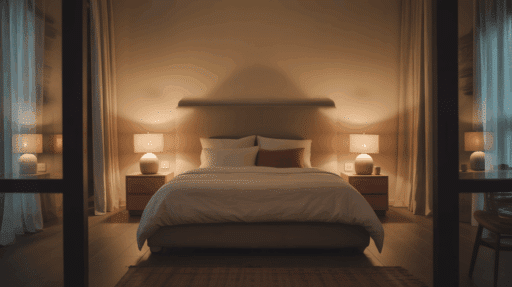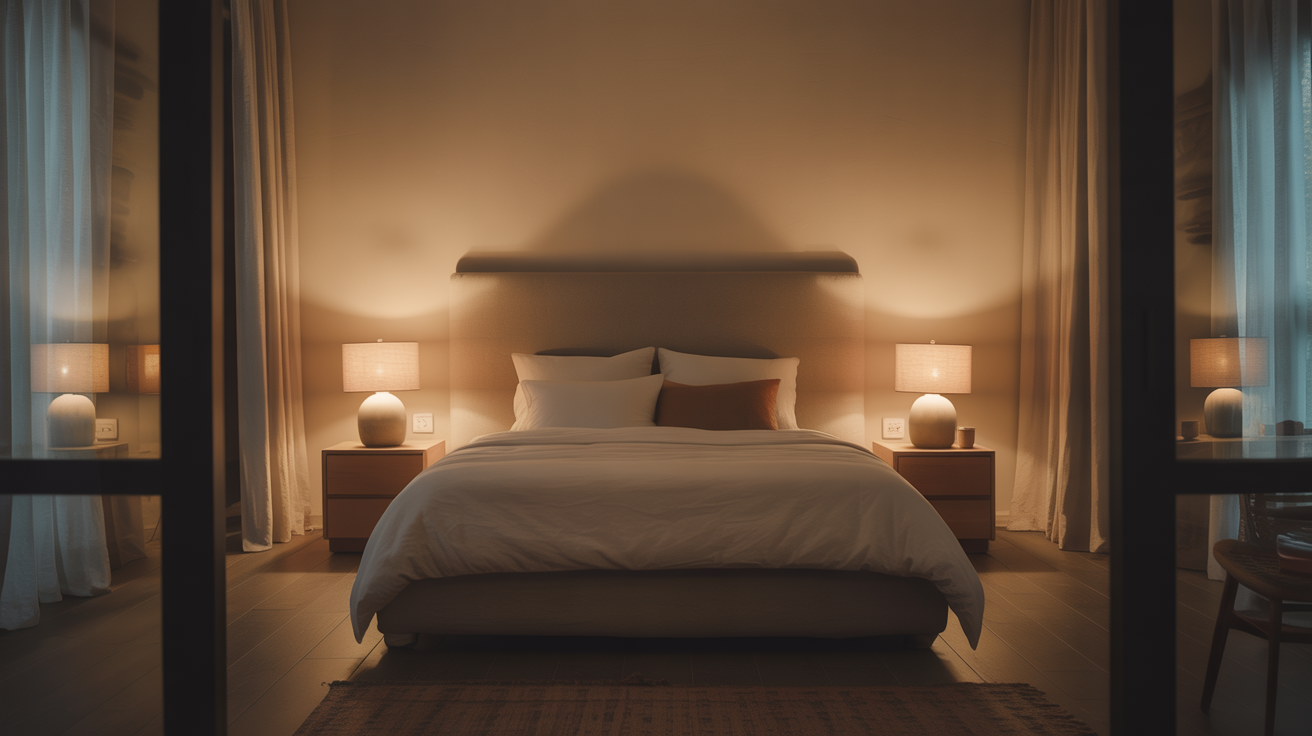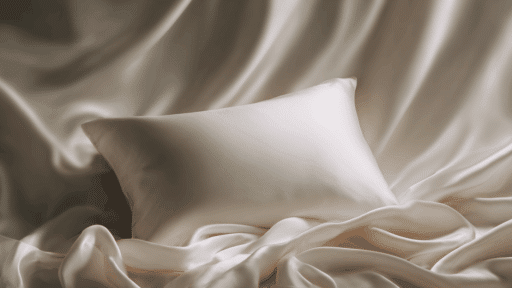I used to toss and turn every night, wondering why sleep felt so elusive. Then I found something interesting: where you place your bed matters more than you’d think.
Feng shui bed placement isn’t just ancient wisdom; it’s about creating a space where your energy can truly rest and recharge.
Your bedroom should be your sanctuary, but if you’re constantly feeling restless or drained, your bed’s position might be working against you.
I’ve learned that minor adjustments in bedroom feng shui can make a real difference in how you sleep, wake up, and move through your day.
The Philosophy Behind Feng Shui
This practice originated in ancient China, where people observed how natural landscapes and energy patterns affected human well-being.
They noticed that specific arrangements just felt better, and over time, these observations became a sophisticated system.
At its heart, feng shui is about working with Qi, the life energy that flows through everything.
The concept of Yin and Yang also plays a significant role. Your bedroom needs both: Yang energy for vitality during the day, and Yin energy for deep, restorative sleep at night. It’s all about finding that sweet spot.
Then there are the Five Elements: wood, fire, earth, metal, and water; each bringing different qualities to your space. And the Bagua map? It’s like a blueprint that shows how other areas of your room connect to various aspects of your life.
What I love most about bedroom feng shui is that it’s not about rigid rules. It’s about creating intention and harmony in the space where you’re most vulnerable, while you sleep.
Why Bedroom Feng Shui Matters Most?
When you’re sleeping, your defenses are down. You’re entirely open to the energy around you, which means your bedroom’s vibe directly affects how you recharge.
I learned this the hard way when my room was cluttered with work papers. My mind couldn’t truly relax because subconsciously, I was still processing all that visual noise.
Mirror placement became a game-changer, too. I had a large mirror directly across from my bed, and I constantly felt restless. In feng shui, mirrors bounce energy around too aggressively for a space that needs calm.
The goal of positive energy placement in your feng shui bedroom is to create a space where you feel truly safe and supported.
The Golden Rules of Feng Shui Bed Placement
These core principles have guided bedroom design for thousands of years, and I’ve found them surprisingly practical in modern homes.
1. Place Your Bed in the Command Position
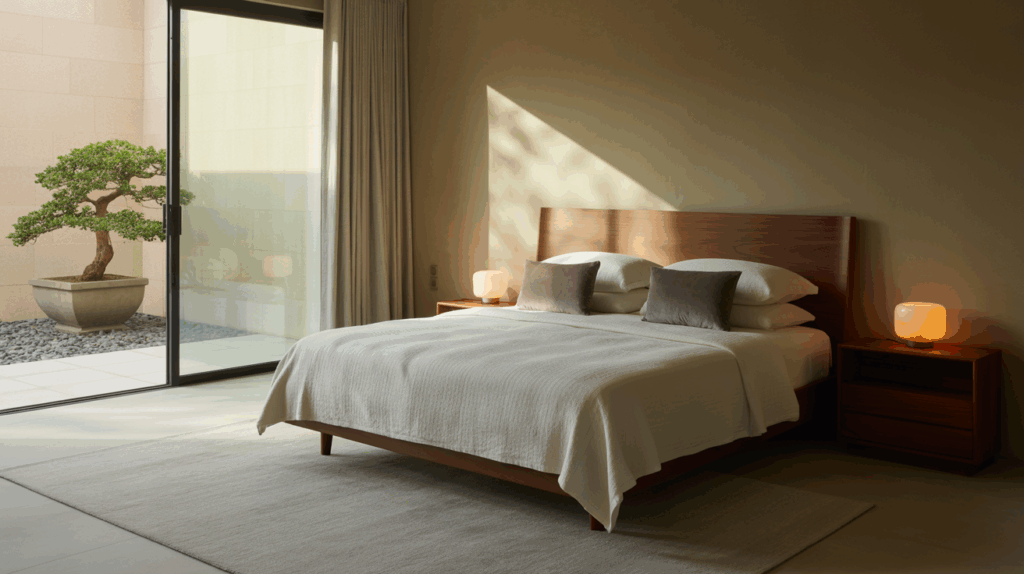
The command position is a foundational Feng Shui concept. It means placing the bed so you can clearly see the bedroom door while lying down, without being directly in line with it.
- Why it matters: This provides a sense of safety, control, and personal empowerment.
- What to avoid: Beds directly aligned with the doorway; if unavoidable, use a footboard or soft energy buffer like a bench or rug.
2. Anchor Your Bed with a Strong Headboard
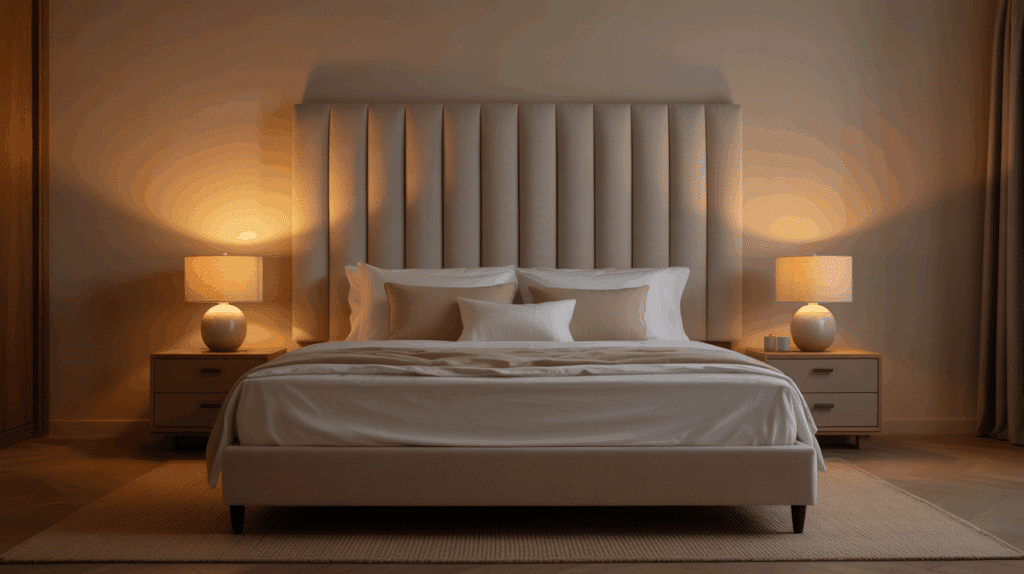
A sturdy, well-attached headboard represents stability and support in life, particularly in relationships.
- Why it matters: A sturdy headboard provides emotional stability and long-term support for relationships.
- What to avoid: Slatted, broken, or sharp-edged headboards that disrupt energy flow.
3. Ensure Equal Space on Both Sides

Balance is crucial in Feng Shui. Leave even space on both sides of the bed for energetic symmetry and relational harmony.
- Why it matters: Balanced space symbolizes harmony and equality, especially in partnerships.
- What to avoid: Beds pushed against a wall on one side or lopsided arrangements that disturb balance.
4. Avoid Placing Your Bed Under a Window

A bed beneath a window lacks energetic protection and may cause disturbed sleep.
- Why it matters: Sleeping under a window can weaken protection and lead to restlessness or vulnerability.
- What to avoid: Uncovered or large windows directly behind your head while sleeping.
5. Don’t Place Your Bed Under an Overhead Beam

Beams create a feeling of oppression and can symbolically “cut” the energy over your body, potentially impacting your health.
- Why it matters: Beams symbolically “cut” energy, which may cause physical or emotional strain.
- What to avoid: Sleeping directly beneath exposed beams without any energy shield.
6. Avoid the “Coffin Position”
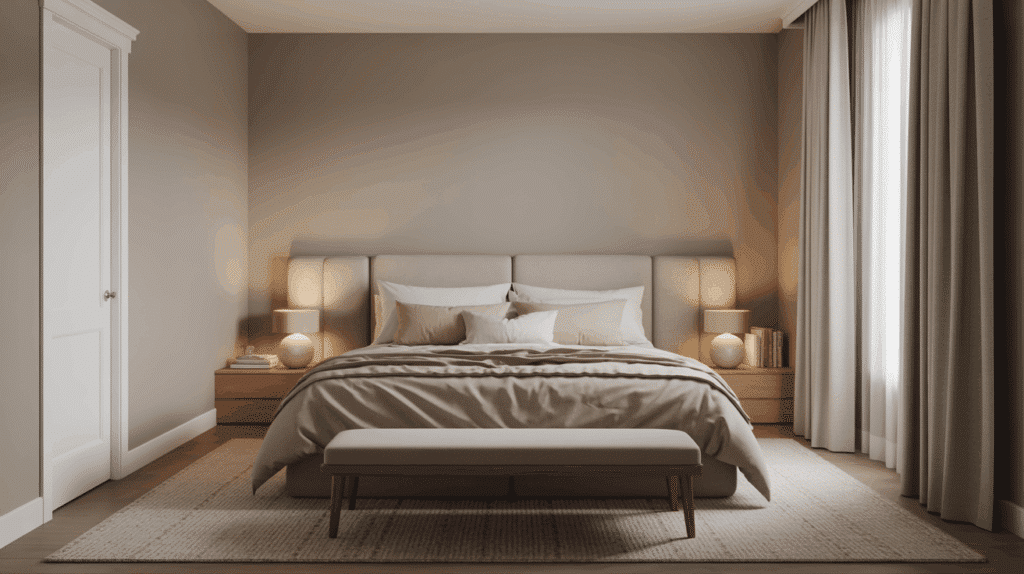
In Feng Shui, the so-called coffin position refers to placing the bed directly in line with the door, with your feet pointing toward it.
- Why it matters: Feet pointed directly at the door invite excessive energy and discomfort.
- What to avoid: Beds placed head-to-toe with the door opening, also known as the “death position.”
7. Let Your Bed “Breathe”

Ensure your bed is accessible from both sides and isn’t pushed against a wall (except the headboard).
- Why it matters: Allowing energy to flow around and under the bed promotes vitality and openness.
- What to avoid: Beds on the floor or with cluttered storage underneath.
8. Elevate and Align the Bed Properly
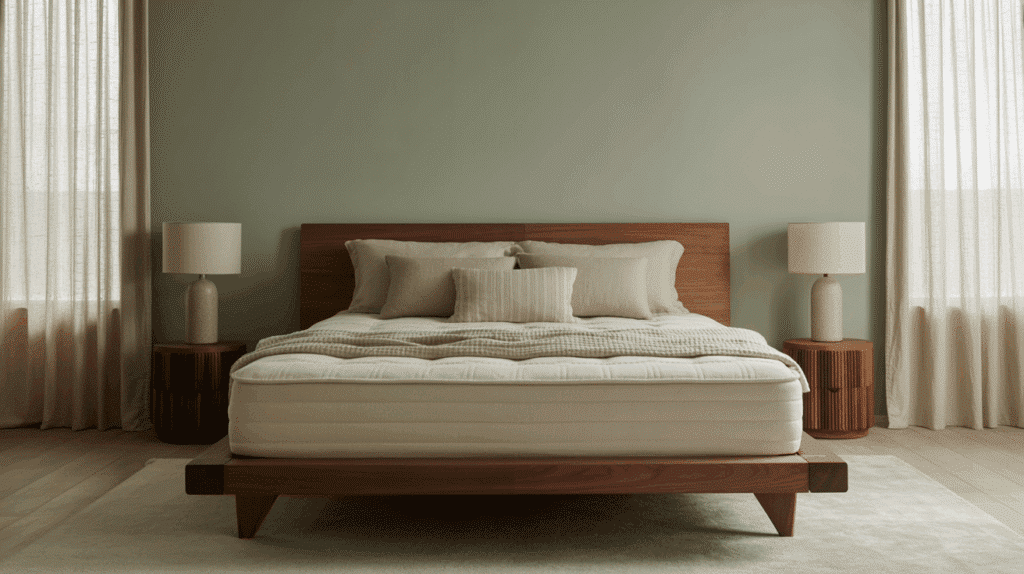
Beds that are too low to the ground can trap stagnant energy, while those that are too high can create a sense of disconnection.
- Why it matters: The right bed height supports energetic grounding and avoids stagnation.
- What to avoid: Beds that sag, tilt, or sit directly on the ground.
9. Minimize Mirrors Reflecting the Bed
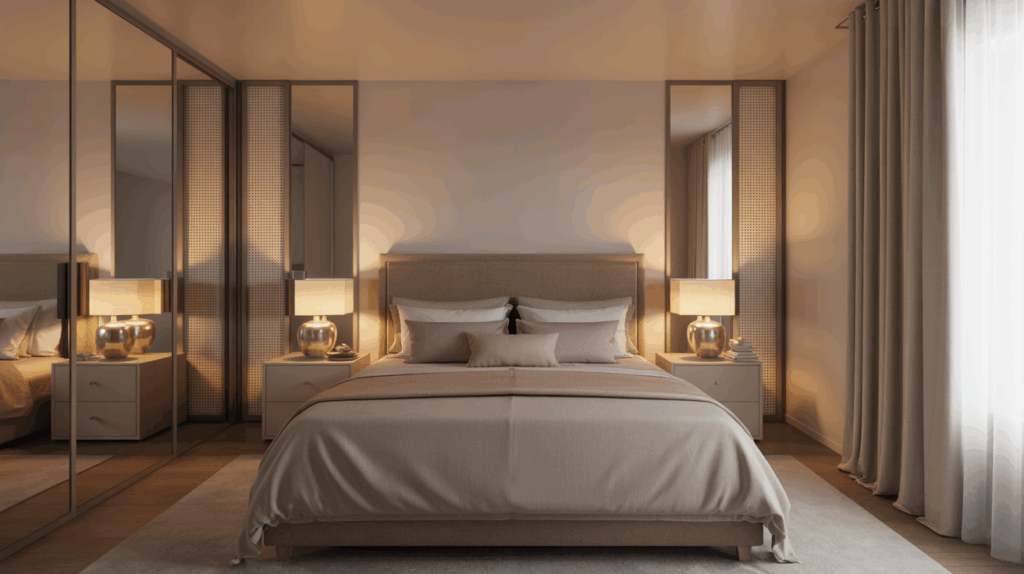
Mirrors can bounce energy, disrupt sleep, and amplify anxiety, primarily if they reflect your bed.
- Why it matters: Mirrors can bounce energy back at you, causing disturbed sleep or anxiety.
- What to avoid: Mirrored closet doors or large mirrors facing the bed directly.
10. Avoid Placing the Bed Against a Wall Shared with a Toilet
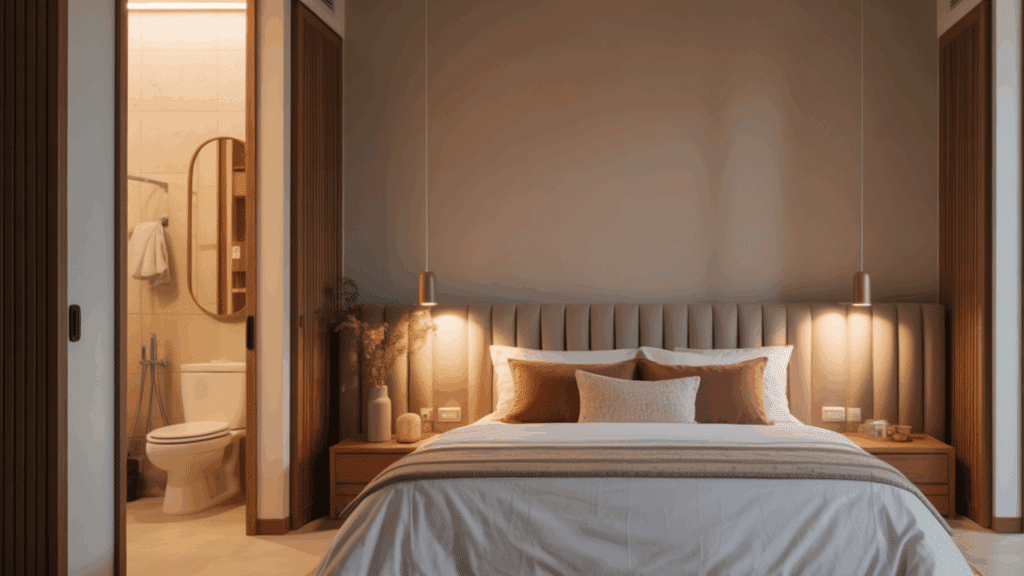
Sleeping against a bathroom wall invites draining, chaotic energy that can disturb your rest. In Feng Shui, bathrooms are linked to downward energy flow and loss.
- Why it matters: Bathrooms can be a drain on energy, especially when pipes run behind your head.
- What to avoid: Sleeping with your head against a wall where a toilet or plumbing fixture is located on the other side.
11. Keep the Foot of the Bed Clear

An open space at the foot of your bed allows Qi to circulate freely while you sleep. This also symbolically keeps your life path unobstructed.
- Why it matters: This allows Qi to circulate freely around your body while you sleep.
- What to avoid: Tall dressers, TV consoles, or blocking furniture at the foot of the bed.
12. Use Pairs to Attract or Maintain Love
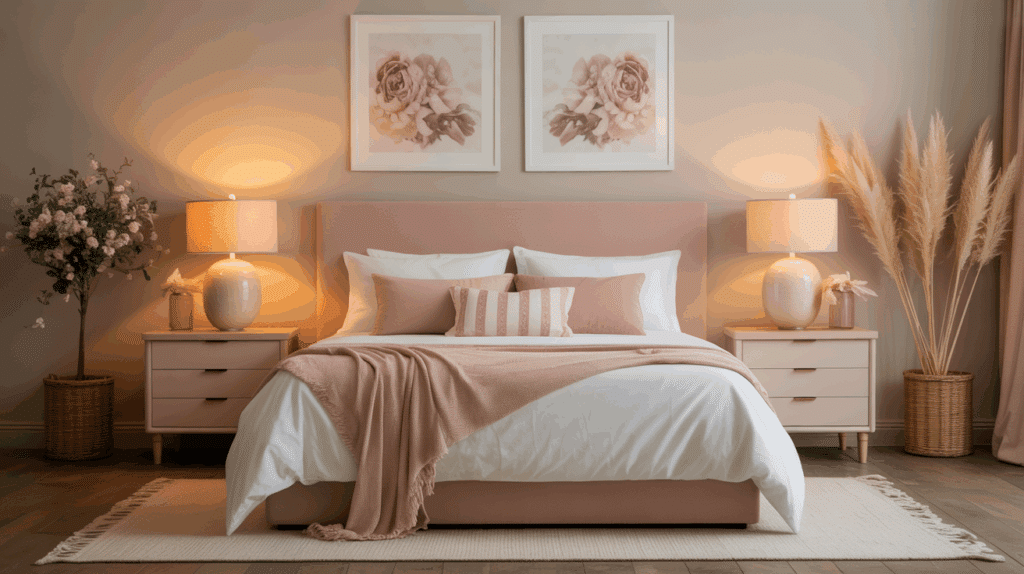
Pairs represent partnership in Feng Shui, which is essential for attracting or nurturing romantic relationships. Energetic symmetry helps maintain harmony.
- Why it matters: Pairs symbolize union and attract relationship harmony.
- What to avoid: Solo items, such as a single artwork, which can create an imbalance.
13. Choose Calming Artwork Above the Bed
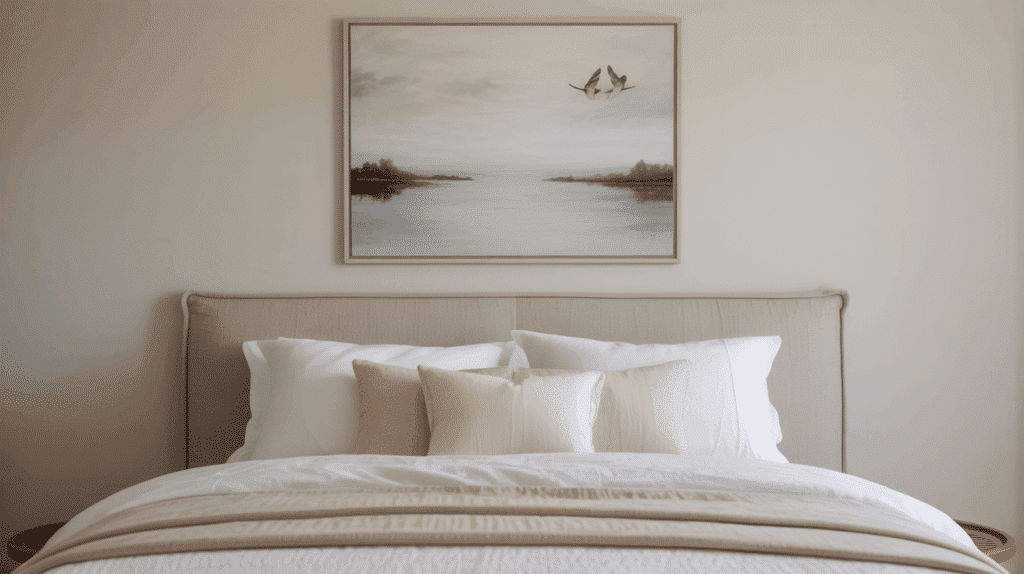
What hangs above your head while you sleep subconsciously affects your mind and emotions. Gentle, soothing images enhance rest and security.
- Why it matters: The energy above your head influences subconscious sleep states.
- What to avoid: Aggressive, lonely, or chaotic imagery directly above your bed.
14. Use Soothing Scents and Natural Materials
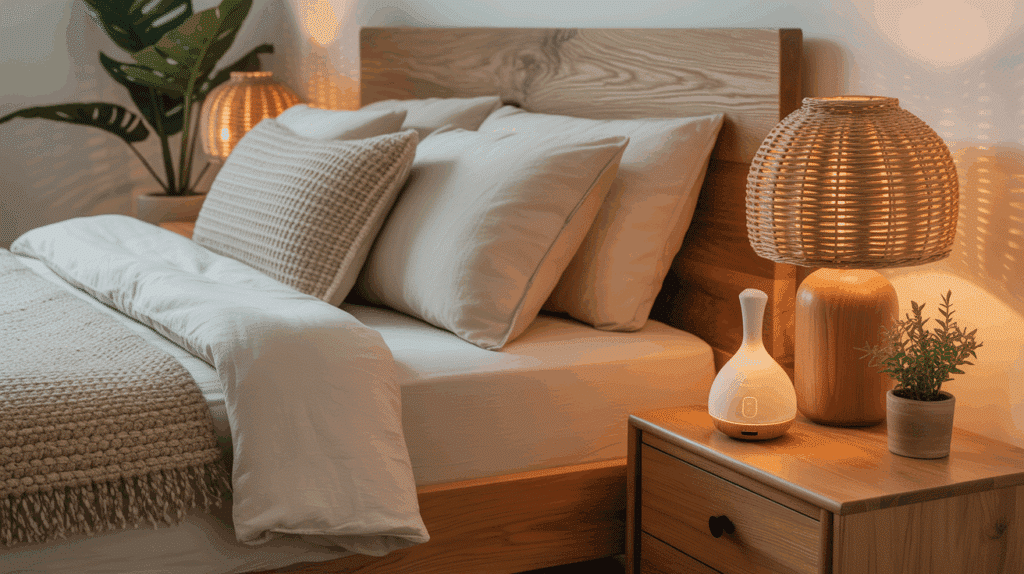
Scent and texture carry energetic frequency. Natural fibers and calming aromas (like lavender) help create a nurturing, high-vibration sleep space.
- Why it matters: Scents and textures impact the energy field around your bed.
- What to avoid: Synthetic fabrics, harsh cleaning products, or chemically scented candles.
15. Keep Under-Bed Space Emotionally Clean

The energy of objects beneath your bed subtly affects your unconscious mind while sleeping. Avoid emotionally charged or cluttered storage.
- Why it matters: Stored items carry emotional and energetic residue.
- What to avoid: Old photos, shoes, or sentimental clutter under the bed.
16. Don’t Face the Bed Toward a Sharp Corner or Wall Edge
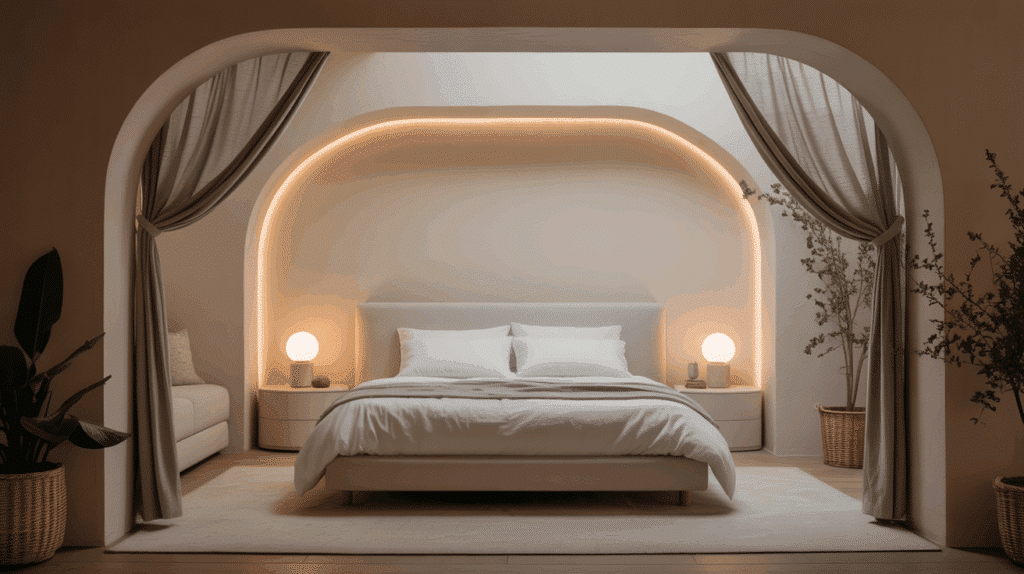
Sharp architectural features aimed at the bed act like energetic daggers. They can cause tension or anxiety during sleep.
- Why it matters: These angles create a subconscious feeling of threat or pressure.
- What to avoid: Having your bed aimed directly at a cornered wall or pillar.
17. Limit Overhead Storage or Shelving
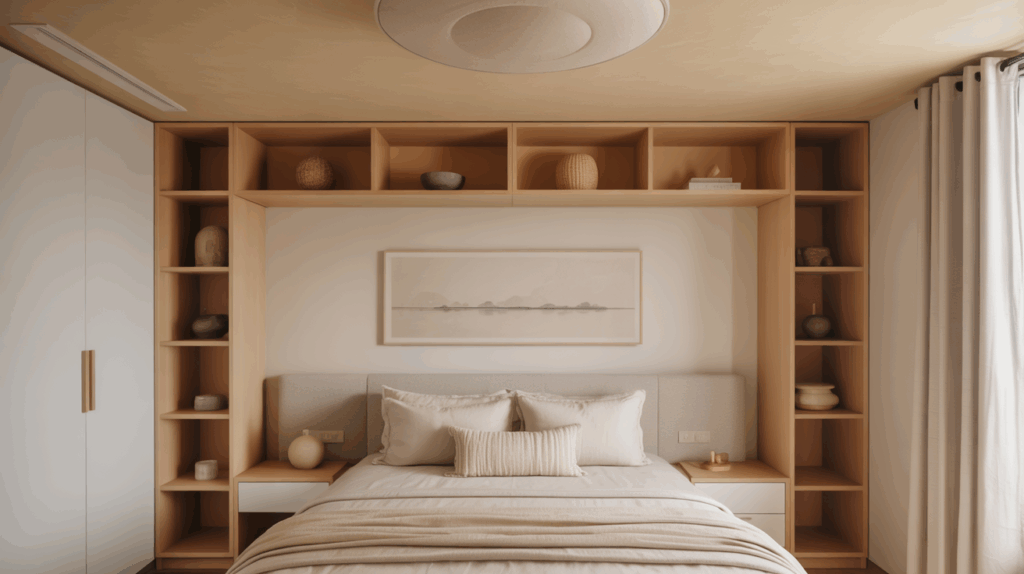
Heavy objects above your bed symbolize psychological pressure and burden. Feng Shui favors light, open energy above where you rest.
- Why it matters: Heavy objects above the bed symbolize pressure or burdens.
- What to avoid: Overhead cabinets, bulky art, or heavy shelving above the headboard.
Positive Energy Placement Tips for Every Room Type
Not every bedroom is the same, and neither are the people sleeping in them. I’ve learned that adapting feng shui principles to different room types and living situations creates more realistic and sustainable bedroom feng shui solutions.
Small Bedrooms
In my tiny first apartment, I couldn’t achieve perfect feng shui bed placement, but I found ways to work with what I had. If you can’t avoid placing your bed under a window, consider adding a solid headboard and heavy curtains for added stability.
Can’t see the door? Use a small mirror positioned so you can glimpse the entrance from bed. Even six inches of space on one side is better than none for Qi flow.
Shared Bedrooms or Couples
This is where bedroom feng shui gets interesting. Both partners need equal access to the bed, so floating it in the room is the best option. I learned that having matching nightstands isn’t just about looks; it creates a sense of energetic equality.
If one person has storage space and the other doesn’t, it can create an imbalance in the relationship. Also, make sure both sides have adequate lighting and personal space.
Children’s Rooms
Kids need different energy than adults. I’ve noticed children sleep better when their bed is against a solid wall; it gives them that secure, cocooned feeling.
Avoid bunk beds if possible, since the child on the bottom feels pressed down, while the top child lacks grounding. Keep electronics out and use soft, nurturing colors.
A small nightlight creates just enough gentle energy without overstimulating young minds.
Guest Bedrooms
You want positive energy placement that makes visitors comfortable without making the space feel occupied by someone else’s energy.
Neutral colors work best, and I always ensure guests can see the door from bed; it helps them feel secure in an unfamiliar space.
Common Feng Shui Bed Placement Mistakes to Avoid
Even with good intentions, it’s easy to disrupt the energy flow in your bedroom inadvertently.
I’ve made most of these mistakes myself, and each one taught me something valuable about creating better bedroom feng shui.
Here are the biggest pitfalls to watch out for.
- Headboard against shared walls (bathroom, kitchen): Bathrooms can be a drain on energy, and kitchens often bring chaos. If unavoidable, add insulation or hang a tapestry as an energetic barrier.
- Mirrors facing the bed: Mirrors bounce energy aggressively when you need calm, and they can reflect relationship energy out of the room. Move them to the side walls instead.
- Storage under the bed disrupts the flow: I used to stuff everything underneath; old photos, winter clothes, and random boxes. If you must store items below, keep only fresh linens or things related to sleep and romance.
- Misusing color without intent: Each color carries specific energy; use them purposefully. Too much of any single element can create an imbalance in your bedroom’s feng shui.
Conclusion
Creating better feng shui bed placement isn’t about perfection; it’s about intention.
I’ve shared these principles because small changes in your bedroom can ripple out into every area of your life. You don’t need to overhaul everything overnight or follow every rule exactly.
Your bedroom should work for you, not against you.
When you align your sleeping space with these ancient principles, you’re not just improving your rest; you’re setting the foundation for more balanced days ahead. Sweet dreams start with intentional spaces.

